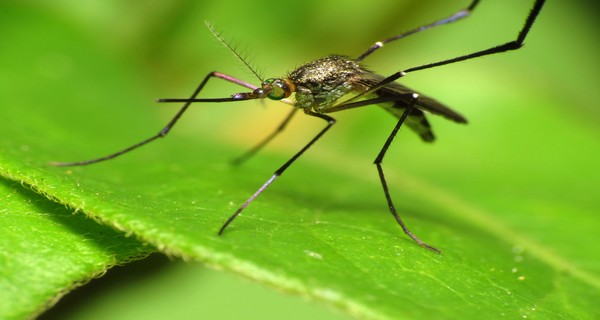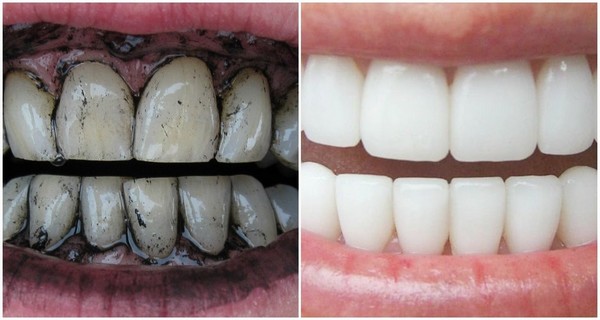Ad Blocker Detected
Our website is made possible by displaying online advertisements to our visitors. Please consider supporting us by disabling your ad blocker.

How To Keep Mosquitoes Out Of Your Yard
Nobody wants annoying mosquitoes hanging around their lawn. If you’re wondering how to get rid of these pesky insects, this guide can help you kick them out of your yard for good.
No matter where you live, when the weather gets warmer, you’ll probably come across mosquitoes. They like warm and wet places, and standing water gives them a place to make more mosquitoes. Besides the annoying buzzing and itchy bites they give you, mosquitoes can also make you sick. So, it’s important to know how to get rid of them if they won’t leave your property.
The good news is there are different ways to stop them from taking over your yard and to stop them from coming back. And if you don’t want to use strong chemicals, you can try natural things to keep them away, and you don’t even need to spray your house. This guide will show you step-by-step how to keep mosquitoes away, and it will also tell you when to ask a professional for help if there are too many of them.
Time required: 1 to 2 hours
Difficulty: Beginner
Estimated cost: $50 to $500
Before You Begin…
While it might seem tempting to light citronella candles and plant lavender, it’s important to accurately recognize the insects as mosquitoes and assess the extent of the mosquito issue. This not only helps residents discover effective mosquito repellent strategies but also devise a suitable mosquito solution.
To begin, correctly distinguishing mosquitoes from similar-looking insects like crane flies or non-biting midges is crucial. Adult mosquitoes possess a distinctive set of characteristics: a single pair of wings, a curved back, an elongated biting organ extending from their head, and wing veins covered in scales. In contrast, crane flies have straighter abdomens and wings that are farther from their bodies, while non-biting midges lack the lengthy mouthpart characteristic of mosquitoes.
Once it’s confirmed that mosquitoes are indeed present, the subsequent step involves identifying signs of a mosquito infestation, as the occasional appearance of a mosquito doesn’t necessarily indicate a full-blown infestation requiring treatment.
Common indications of a yard infested by these insects include a continuous buzzing sound, observing mosquitoes both during the day and at night, experiencing frequent mosquito bites, and spotting mosquitoes in shaded parts of the yard. If these signs are noticeable and you’re struggling to find effective ways to eliminate mosquitoes from your outdoor space, relying solely on do-it-yourself methods might not be sufficient. In such cases, reaching out to one of the top mosquito control services could be a prudent step.
- Mosquitoes can carry viruses like Zika and West Nile.
- Zika typically causes mild reactions in most people, but pregnant women are at higher risk, as it can lead to birth defects, miscarriages, and stillbirths.
- West Nile virus doesn’t have a vaccine or treatment, and though rare, it can result in serious neuro-invasive conditions such as meningitis or encephalitis.
- Protect against mosquito bites by using effective mosquito repellents and wearing long sleeves.
- When choosing an insect repellent, opt for those with EPA-approved ingredients, known to provide the best protection.
-
- DEET
- Picaridin
- IR3535
- Oil of lemon eucalyptus (OLE)
- Para-menthane-diol (PMD)
- 2-Undecanone
STEP 1: Eliminate any standing water outside the home.
Mosquitoes tend to lay their eggs in stagnant water, making areas of still water around your home a potential breeding ground. These stagnant water spots can range from small puddles to water within birdbaths, trash containers, inflatable pools, or outdoor toys.
The primary step in addressing mosquito issues in your backyard is to regularly eliminate any standing water. This not only reduces the mosquito population around your home but also prevents their return.
To achieve this, it’s advisable to conduct a weekly inspection of your yard. Empty any objects holding water and either cover containers without lids that could become mosquito breeding sites. You can also secure open vents or plumbing pipes with fine wire mesh to prevent adult mosquitoes from entering. Additionally, sealing any cracks or gaps in the septic tank can also be beneficial.
STEP 2: Clean the gutters regularly.
Clogged gutters filled with debris, leaves, or standing water left over from rainstorms can lure mosquitoes and result in an infestation. Regularly cleaning the gutters yourself or enlisting the services of a top-rated gutter cleaning company can reduce the chances of attracting mosquitoes to your property. This simple step can often be the key to effectively repelling mosquitoes and preventing their return.
STEP 3: Maintain the lawn.
Mosquitoes are attracted to cool, shaded, and moist areas, and lawns that are overgrown can offer these conditions. Keeping up with routine lawn care tasks like mowing and trimming prevents adult mosquitoes from finding nesting spots and helps sunlight dry out any standing water faster. Proper lawn maintenance reduces the likelihood of creating a suitable mosquito breeding environment, which can lead to rapid population growth.
Maintaining well-trimmed bushes and promptly clearing yard debris is also advisable. Another useful approach is to utilize cedar mulch in garden beds, as the natural oils in cedar repel mosquitoes, and the mulch itself can absorb excess moisture.
STEP 4: Try natural, DIY mosquito repellents.
There are plenty of home remedies to get rid of mosquitoes for those who are wary of applying harsh chemicals or solutions that are dangerous to children or pets but are trying to figure out how to control mosquitoes. The following options are natural, low-risk ways to keep these insects at bay.
-
- Plant Aromatic Herbs and Flowers: Incorporate fragrant plants like lemongrass, basil, lavender, and peppermint around your home to naturally repel mosquitoes. Flowers such as marigolds and lantanas can also discourage these insects. Placing these plants along your property’s perimeter can help manage mosquito populations and prevent their entry into your living spaces.
- Encourage Natural Predators: Consider inviting bats to your yard, as they are formidable mosquito hunters, consuming up to 1,000 mosquitoes per hour. Construct or purchase a bat house and position it with adequate sunlight exposure (at least 6 hours daily). Ideally, place it 12 to 20 feet high, away from tree branches (at least 20 to 25 feet).
- Utilize Fans: Employing fans indoors can thwart mosquitoes, as their delicate flight capabilities are disrupted by strong air currents. Outdoor fans can also be installed to counter mosquito problems in your yard.
- Light Citronella Candles: Citronella candles release an aroma that masks human scents that attract mosquitoes, making them less likely to approach. Available at various stores, these candles are a simple and affordable option.
- Embrace Bug Zappers: Bug zappers, emitting light and attracting chemicals, effectively lure and eliminate mosquitoes around your home. These devices range from handheld options to more sophisticated choices with varying price points.
- Burn Used Coffee Grounds: Reuse old coffee grounds by burning them outdoors. Like citronella candles, the strong scent of burning coffee grounds masks human odors and repels mosquitoes. Simply light the grounds in a bowl as you would with incense.
- Deploy Mosquito Traps: Modern mosquito traps can come in the form of UV lights or wall-mounted fixtures. Some deliver a high-voltage shock upon contact, while others are portable and suitable for outdoor activities or camping.
STEP 5: Kill and repel mosquitoes with commercial products.
When natural remedies prove insufficient, residents have the option to employ pesticides for deterring mosquitoes. Commercial products containing active ingredients like prallethrin, etofenprox, pyrethrins, permethrin, resmethrin, and sumithrin can be readily purchased at local home improvement stores. These substances are often formulated into ultra-low volume (ULV) sprays. Once dispersed into the air, the liquid transforms into minuscule aerosol droplets that effectively eliminate mosquitoes upon contact.
If opting for commercial pesticides, it’s essential to carefully read the warning labels in advance. Certain ingredients should be kept away from children, pets, and pregnant women, making it crucial to prioritize safety.

